Thriving Economy
For decades, Hawaii has aimed to create a diverse and resilient economy. The Covid-19 pandemic only emphasized the importance of self-sufficiency, supporting small businesses as the lifeblood of our economy, adopting sustainable environmental and business practices and the need for collaboration across all sectors to solve key issues to truly enable our state to become less reliant on outside influences.
ASB is proud to share in and be at the forefront of this mission by expanding solutions and possibilities for Hawaii consumers and businesses. We foster innovation and entrepreneurship through monetary support and by providing business and financial expertise to Hawaii’s startup community.
Menu
Helping Small Businesses Thrive
At ASB, our bankers are committed to understanding the needs, challenges and goals of our business customers. In fact, helping them navigate the ups and downs of owning a successful business is what makes us tick.
Our bankers understand that every business is unique and there isn’t a one-size-fits all approach to solving problems. We take the time to ask questions, listen to customers’ future plans and work with them to create personalized solutions that are right for their situation. For us, helping business customers reach the next level is a challenge we take personally. We also thoughtfully create programs that empower our community to take an active role in supporting and improving our local economy.
More than
0%
of Hawaii companies ...
Click to learn more →
More than 99% of Hawaii companies are considered small businesses and employ roughly half of the local workforce, according to the U.S. Small Business Administration.
Click to close →
When Small Businesses Thrive, Our Economy Thrives
Buy Local Program
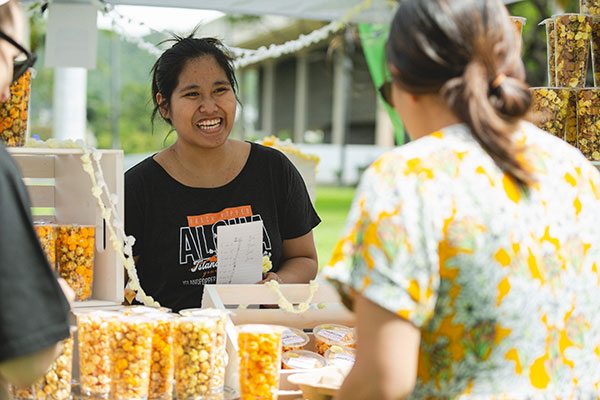
Participating Buy Local Businesses
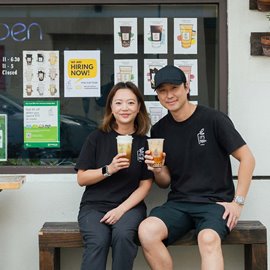
“Not only does participating in the program boost our sales, it also gives us the opportunity to keep doing what we love for this community.”
Anny Lin, Owner of It’s Tea Hawaii

"The Buy Local campaign is an organized effort created to unite our family, friends and neighbors with small local businesses. This program was created to help customers save money, while inviting them to dine-in at their favorite restaurants and continue creating forever memories with their friends and family.”
Sheryl Matsuoka, Executive Director of the Hawaiʻi Restaurant Association
In 2023, we are excited to expand our partnership with popular merchants offering exclusive savings for ASB customers. Our new Buy Local referral program even incentivizes participating businesses to sign on other companies and receive free perks. This year, partners will also have the opportunity to be featured at ASB-sponsored community events aimed at promoting small businesses, family-friendly activities, Hawaiian culture and free financial resources.
Support for Hawaii’s Struggling Restaurants
“The Hawaii Restaurant Card program served as a lifeline for those struggling to maintain the sustenance of their local businesses.
Through the support of ASB and our local business community, our food service industry is gaining strength, although it remains an uphill battle. On behalf of The Hawaiʻi Restaurant Association, I would like to thank American Savings Bank and all the Hawaii businesses that purchased the Hawaii Restaurant Card Business Holiday Cards in support of the food service industry.”
Sheryl Matsuoka, Executive Director of the Hawaiʻi Restaurant Association
Hawaii Restaurant Card Impact
Between March and December 2020, during the height of the Covid pandemic, more than 3,600 of our state’s restaurants temporarily closed their dining rooms, according to the Hawaii Restaurant Association due to state and local mandates. Over a hundred restaurants did not survive, closing their doors permanently.
HRC Business Holiday Card Program
Following this successful program, ASB led the effort to involve the local business community. The HRC Business Holiday Card program gave businesses and entities the opportunity to multiply the impact of their employee holiday gift program by purchasing pre-paid gift cards for their employees, clients and partners, while making a direct impact on the local restaurant and food supply chain industries.

“This was truly a business-to-business effort and an opportunity for organizations statewide to step up, support one another and be a part of the bigger picture to help rebuild our economy.”
Sherry Menor-McNamara, President and CEO of the Chamber of Commerce Hawaii.
Combined, both HRC programs resulted in more than $75 million of direct impact to the state’s restaurant industry and food supply chain, including farmers, fishermen, ranchers, producers and distributors.
The Hawaiʻi Restaurant Association reported that between December 2021 and June 2022, revenue for Hawaii’s restaurant owners grew as a result of the HRC program.
In September 2022, ASB announced the donation of $129,000 in unused funds from the HRC program. Three nonprofits – Hawaii Chamber of Commerce Foundation, Hawaiʻi Agricultural Foundation and Hawaiʻi Restaurant Association Educational Foundation – each received $43,000 to continue bringing nutritious meals and educational resources to the community.
ASB Cares Update
One of the most significant and rewarding ways our ASB teammates had a positive, direct impact on strengthening our economy was by helping thousands of local companies struggling to pay their employees secure make-or-break federal loans.
When Congress established the Paycheck Protection Program (PPP) in March 2020 through the CARES Act, ASB teammates from across the bank rallied and to secure as much federal dollars as possible for Hawaii companies before funding ran out. From setting up loan application processes to verifying documents, our team members went above and beyond to support local companies during an extremely difficult time.
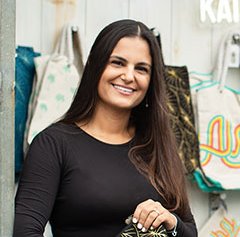
“Since our start in 2013, ASB has been there to see our small business grow and blossom. Receiving the PPP was a big relief and has allowed us to keep afloat during these uncertain times. Our team at the Kailua branch has been incredibly helpful and diligent in standing by our side when we needed it the most.”
Lana Penaroza, Owner of Tag Aloha
In March 2020, ASB established a loan payment deferment program for our commercial borrowers, which continued through 2021. Business customers were able to request up to two 90-day deferments, which provided some breathing room as they took care of their customers and workers and purchased protective equipment.
We helped our PPP customers navigate the subsequent loan forgiveness process, which was a huge relief and turning point for businesses as they transitioned from survival to recovery mode. As long as their loan proceeds were used on payroll costs, mortgage interest payments, rent payments, utilities, operations expenditures, property damage costs, supplier costs and worker protection expenditures and the borrower met all program requirements, the loan was eligible for forgiveness by the U.S. Small Business Administration. Banks received fees as loans were forgiven. In 2021, PPP fees contributed about $14 million in revenue for ASB.
Helping a Business Serve the Community
At the peak of the pandemic in March 2020, when the Small Business Administration (SBA) launched the Paycheck Protection Program (PPP), something magical happened at ASB. Our bankers across the state put aside their own personal apprehensions about Covid-19 and stepped up like never before to be there for our customers.
We immediately set up a 24-hour operation at our ASB Campus to secure critical federal funding to keep Hawaii’s businesses afloat. Although our bankers are experienced troubleshooters and everyday problem solvers, the uncertainty of the pandemic provided us the opportunity to support our customers in new ways.
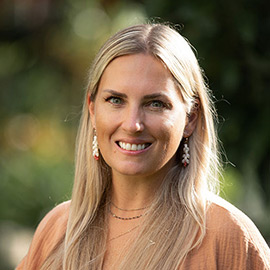
“The pandemic hit all of us so hard and we didn’t know how to navigate the complicated PPP process. We weren’t sure if we would qualify, however, I didn’t want to let our employees go because we knew we could still be of service to the community by utilizing our logistics, strategy and communication skills to support our community.”
Amanda Corby Noguchi, President of Under My Umbrella (UMU), Inc.
(Event Planning and Public Relations Company)
Corby Noguchi said she reached out to a few local banks for help. “American Savings Bank responded almost immediately and we received overwhelming support.” UMU was one of the thousands of small businesses that ASB assisted throughout the PPP process and received crucial funds to keep all of their employees working. This allowed them to have the resources to partner with communities and charities through their nonprofit arm, Chef Hui, an organization that brings together chefs, farmers and restaurants from across our state, to give back to the food service community in ways that will continue to benefit Hawaii for generations to come.
Through this partnership, UMU staff quickly connected businesses and organizations with excess food to those without and helped Chef Hui roll out several new programs and events addressing issues of food insecurity. More than 500,000 meals for families in-need were cooked, served and distributed by Chef Hui during the pandemic, resulting in over a million pounds of locally grown food distributed in just a couple of months.
Give & Go Community Meal Program
Click to learn more →
Hover to reveal →
Give & Go Community Meal Program
Mahiʻai Produce Boxes and Meal Kits
Click to learn more →
Hover to reveal →
Mahiʻai Produce Boxes and Meal Kits
Festival of Hope
Click to learn more →
Hover to reveal →
Festival of Hope
“We were passionate about bringing the community together,
we didn’t want any food to go to waste and we wanted to do our part to lessen layoffs in the food service industry and encourage farmers to keep farming. We were able to make all of these dreams possible through ASB’s support."
Amanda Corby Noguchi, President of Under My Umbrella (UMU), Inc.
Developing Hawaii’s Next Generation of Entrepreneurs
ASB is a proud supporter of several local business accelerator programs, including Blue Startups, a 13-week program for tech-focused companies, Mana Up, a 12-week program for consumer-packaged goods companies with a Hawaii influence and Elemental Excelerator, a nonprofit accelerator for climate tech deployment. We have also been long-time supporters of the state’s student entrepreneurs at the Hogan Entrepreneur Program at Chaminade University and the University of Hawaiʻi’s Shidler College of Business and Pacific Asian Center for Entrepreneurship (PACE).
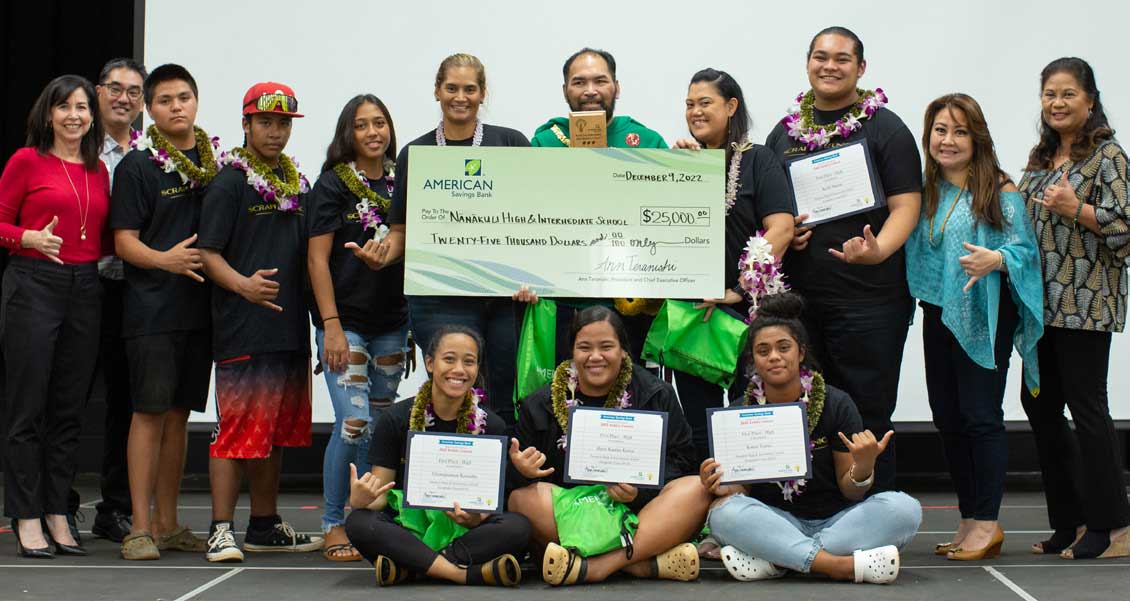
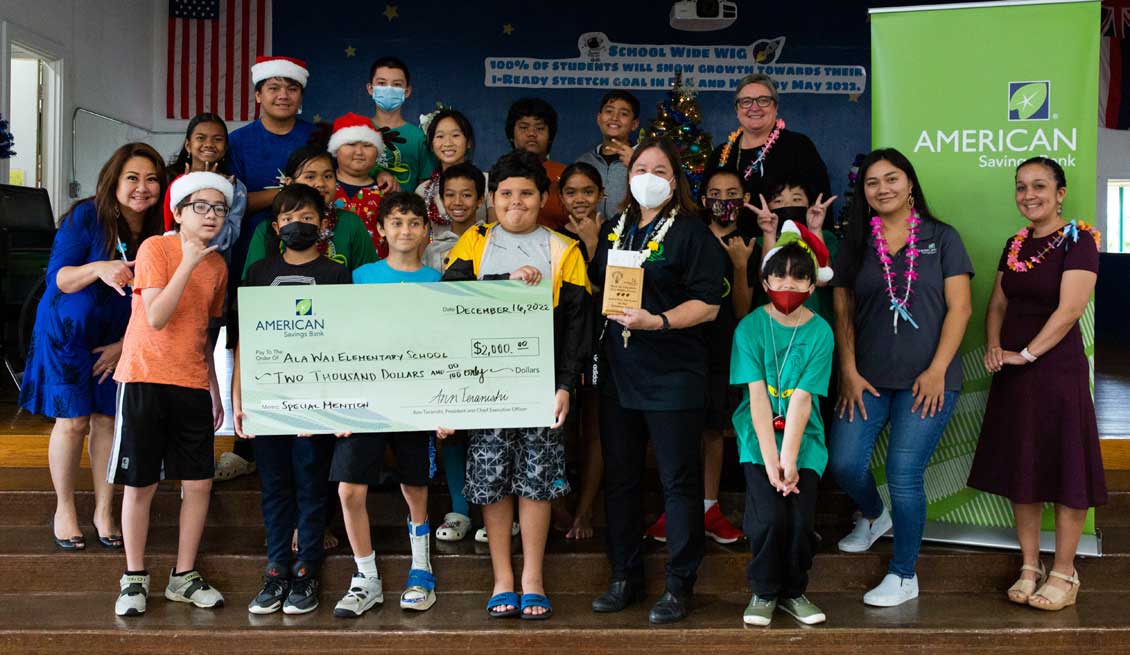
We recognize that innovation and entrepreneurship begin from the earliest days in the classroom. In 2015, ASB created the KeikiCo Contest, designed to foster innovation and entrepreneurship among our state’s youngest learners.
Students in grades 3 to 12 submit a written business plan and a two-minute video pitch showcasing their best business plan ideas before a panel of esteemed judges for a chance to win up to $25,000 for their school. ASB provides curriculum support and “how-to” videos to guide teachers and students through the process. Our bankers are paired with schools near their branch to provide additional support and mentorship throughout the 10-week program.
KeikiCo Contest 2022 Results
0
Entries
0
Schools
0
Students
$0K+
Awarded by ASB in unrestricted funding to nine schools
As an added bonus, ASB sweetened the deal and gave students on the first place teams a $250 cash prize to invest in their future education. As an additional incentive, students can earn a savings match bonus of up to $250.
The annual KeikiCo Contest 2022 results
0
Entries
0
Students
0
Schools
$0K+
Awarded by ASB in unrestricted funding to nine schools
All winning schools join ASB’s Bank for Education Ohana. This group receives valuable perks, including priority consideration for additional grants, volunteer service projects performed by ASB teammates, student scholarships, internships and more.
Since the Bank for Education program began in 2010, ASB has donated more than $1.6 million to public and private K-12 schools across our state.
In addition to KeikiCo, ASB has supported other K-12 entrepreneurship efforts, such as Center for Tomorrow’s Leaders, the Hawai‘i Agricultural Foundation’s Young Entrepreneurship Program and Kupu’s Hawai‘i Youth Sustainability Challenge, all of which are programs that teach Hawaii students about entrepreneurship, innovation, STEM, environmental stewardship and leadership.
Invested in Tomorrow’s Leaders
Learn more →
Invested in Tomorrow’s Leaders
ASB is invested in the growth and development of Hawaii’s students and future workforce. In July 2021, ASB donated $100,000 in support of Girl Scouts of Hawaiʻi’s STEM Center for Excellence at Camp Paumalu, a 135-acre living laboratory that provides year-round opportunities in cybersecurity, astronomy, robotics, computer coding, botany, chemistry, environmental stewardship and more. The center enables young women to enjoy outdoor adventures while exploring science, technology, engineering and careers in STEM through on-site experiments.
As part of our commitment to developing our state’s future leaders and entrepreneurs, ASB and our holding company Hawaiian Electric Industries pledged $250,000 each to the University of Hawaiʻi Foundation’s live-learnwork community at Residences for Innovative Student Entrepreneurs (RISE). The combined pledge of $500,000 will be used to fund the RISE center’s furnishings, fixtures and equipment, along with operational programs and student scholarships over the next 10 years.
Click to close →
Fostering Entrepreneurship
For decades, tourism has been our No. 1 economic engine, but we know all too well how susceptible the industry is to national and global threats. With Hawaii's unique geography, climate, culture, natural resources and population, we can attract the best and brightest talent from across the world. We are passionate about nurturing and developing local entrepreneurs and the innovation and accelerator community.

“At ASB, nearly 65 percent of our teammates are women and we know first-hand the tremendous things women and girls – especially those who are proficient in STEM – can accomplish when provided the right education, opportunities and support.
We are proud to support Girl Scouts of Hawai‘i’s STEM Center for Excellence, which will provide valuable skills and resources to our community.”
Beth Whitehead, Executive Vice President and Chief Administrative Officer at ASB
Investing in Affordable Housing
According to the latest ALICE® (Asset Limited, Income Constrained, Employed) Report, published by Aloha United Way, the number of people living in poverty in Hawaii grew from 9 percent in 2018 to 15 percent in 2022. ALICE refers to those who have income above the federal poverty line but not enough to afford a basic household budget of under $75,000 in Hawaii. Sadly, about 44 percent of Hawaii’s population falls into this category.
Purchasing a home in Hawaii is no simple feat and more kamaaina (residents of Hawaii) are finding it challenging to remain in the islands with the high cost of living. According to the Honolulu Board of Realtors, the median price of a single-family home on Oahu soared to $1,105,000 in December 2022, an 11.6% increase from the previous year.
It’s more important than ever for us to encourage, support and invest in affordable housing in Hawaii and provide more quality living spaces for ohana (families), keiki (children) and kupuna (seniors).
Currently, ASB has investments in more than
25+ low-income housing projects in Hawaii including:
$0M
in Kaiaulu O Waikoloa
Hawaii Island
Click to learn more →
$9.2 million in Kaiaulu O Waikoloa, a multi-family apartment development in Waikoloa, Hawaii Island, with 60 units for residents with a 30-60% AMI
Click to close →
$0M
in Kaiaulu O Halelea
Maui
Click to learn more →
$8.3 million in Kaiaulu O Halelea, a multi-family rental community in Kihei, Maui, that will offer 56 living units to residents with a 30-60% AMI
Click to close →
$0M
in Kaiaulu O Kukuia
Maui
Click to learn more →
$9.3 million in Kaiaulu O Kukuia, an affordable workforce housing development in Lahaina, Maui, consisting of 100 two-bedroom, 75 three-bedroom and 25 four-bedroom units for residents earning 30-60% AMI
Click to close →
$0M
in Halewaiolu
Oahu
Click to learn more →
$20.4 million in Halewaiolu Senior Residences, a new construction with 156 units in the heart of Downtown Honolulu
Click to close →
We are also a major supporter of the Hawai‘i Community Foundation’s House Maui Initiative, a program designed to expand access to affordable housing in Maui County.
In 2019 ASB’s primary regulator, the Office of the Comptroller of the Currency (OCC), recognized ASB’s “excellent level of qualified community development investments” on Oahu, Kauai and Hawaii Island.
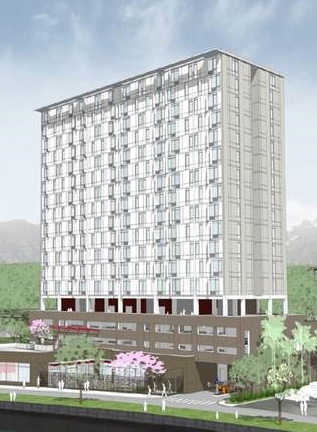
Financing Affordable Housing for Communities in Need
Financing Affordable Housing for Communities in Need
ASB is one of the few local lenders participating in the U.S. Department of Housing and Urban Development’s Section 184A Native Hawaiian Housing Loan Guarantee program, which will increase the financing options for Department of Hawaiian Home Lands (DHHL) beneficiaries. With nearly 30,000 Native Hawaiians on the waitlist for homes, we are committed to providing financial support and resources to help these families make their homeownership dreams possible. Our partnership with Hawaiian Community Assets will help to provide financial literacy to beneficiaries to elevate their financial education. The nonprofit operates financial opportunity centers statewide providing financial counseling, income support and employment and entrepreneurship coaching to low- and moderate-income households and communities.
Just steps away from the ASB Campus, Halewaiolu Senior Residences is an affordable housing project that will provide 156 living spaces to seniors in the surrounding Chinatown community. The project began in 2021 with ASB’s investment of $20.4 million and is estimated to be completed in 2023.